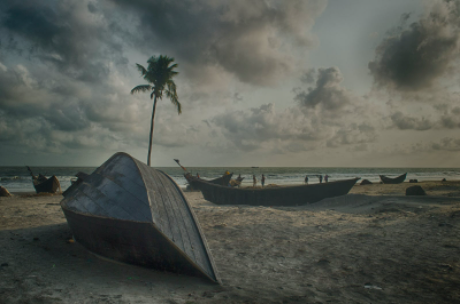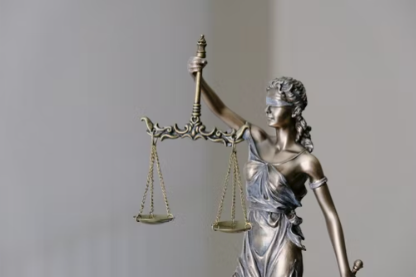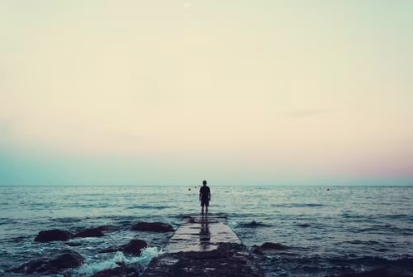Change over the Horizon - Part I.
January 05, 2022
Change is a funny thing. We are told from an early age that without change, nothing is possible, that it’s the ultimate goal to strive for, that progress is impossible without it, but in reality, we are all terrified of it. Because why else would it be so damn hard to do?
From an early age, I have always been an advocate for justice and change. Growing up, my parents’ lives were difficult. My father came to the United Kingdom as a child during Bangladesh’s Liberation War after his village was raided overnight. He came to South London during the peak of racial tensions, and my mother would come to this country with little understanding of British culture and language, but somehow managed to raise four ‘decent’ children. This was nothing special for them because their parents’ lives were as hard — a cycle that continued with my own upbringing.
I was moved around from school to school, always trying to make the most out of the opportunities given to me. I was the first and only person of colour to be a prefect despite some teachers being actively opposed to the idea. They would take it a step further and place me in the bottom set, where I had to wait a whole year to be moved up.
But being in the bottom set did teach me a few things. Most importantly it made me question why the school had forsaken my classmates, and why they banished me here. At the top set, we had the best teachers, tailored support, and engaging lessons, but at the bottom, it was me teaching my classmates how to use computers and read the clock.
I couldn’t help but wonder, why is it like this? Why does society cater to some over others? I realised that life was harder for some, through no fault of their own, and their opportunities were limited as a result. How did we get here? I knew (well I thought) that it would take real leaders — the ones you read about throughout history — to really challenge it, the system quo. And that is who I wanted to be. Someone to change that system.
The leaders I aspired to be were all advocates of social change and justice — men and women of the Law, of principle, and why wouldn’t they be? A global set of ideals bound to a nation or society, order within a world of chaos, that protects us all equally, the perfect system for change. All I had to do was follow in their footsteps, play by the rules, work hard, and just keep going and I will change this world — sounds straightforward enough, right? … or so I naively thought.
My first opportunity to really make the change I wanted was soon after University. I was working at multiple human rights organisations and charities but one day I decided I wanted to go further, delve deeper. So, I spun the globe in my bedroom and wherever it landed I would move to. The first spin landed in the middle of the Pacific Ocean. I looked around at the emptiness of my room and since I was alone, I decided that was the test run and the second time round I landed in central Spain. I was headed to Madrid.
I discovered a human rights charity across the Channel and offered my limited services to work as a Caseworker, as they were inundated with asylum claims, especially from Latin America. Armed with my LLB, six months of legal experience, and 500 hours of Duolingo, I thought I was ready for what was to come. I couldn’t have been more wrong.
My first day through the doors of the office and the scene was chaotic. A team of five with over 100 clients, despite not practising I was immediately given sole ownership of over 10 cases. My first case was a woman who suffered abhorrent sexual torture at the hands of the Venezuelan army. I was so inadequately prepared I resorted to using a google translated ‘torture checklist’ to try and get everything I needed to begin her claim. It was an awful experience made worse by my own inexperience.
And it got worse.
Despite having ample evidence of sexual torture, the claim fell through. There wasn’t enough evidence to prove it was the authorities who committed the rape, and due to time constraints, the DNA evidence also proved insufficient. She was being deported. There was a lot of crying that day. It was an awful experience. And it got even worse.
We never heard from her again.
And it kept happening. Again, and again. Person after person. One hopeful soul after another. I thought I would be able to help these people, people who have lost everything, desperate for a better life, just like my parents, just like me, and I kept failing them. I kept failing me. I thought I was helping, but a part of me always wondered if I’m just giving these people false hope… a fool’s hope.
And that took a toll. Some days were just too hard. After six months I decided that I couldn’t do it anymore — I wasn’t going to quit, but return, this time as a Barrister, and then I could really help those in need. I came back to the United Kingdom and began Law School. But even that wasn’t so straightforward.
If Law School taught me anything, it is that our legal system is not designed to change, it is designed to maintain order. It exposed to me the evident problems I was seeing in the world and how I was powerless to change them. I could never work in that system because that system would inevitably break me. You can’t go out and change things without those things changing you after all.
When you struggle against the systems, people, and barriers, they will have a hand in shaping who you become. I was so caught up in desperately trying to make that change that I barely recognised who I was anymore or why I began this fight to begin with. I realised that to see the change I wanted, I would have to begin by changing myself. I had to change course, and sail in an entirely new direction, to broader horizons.
Written by Tajwar Shelim Follow me on Twitter




